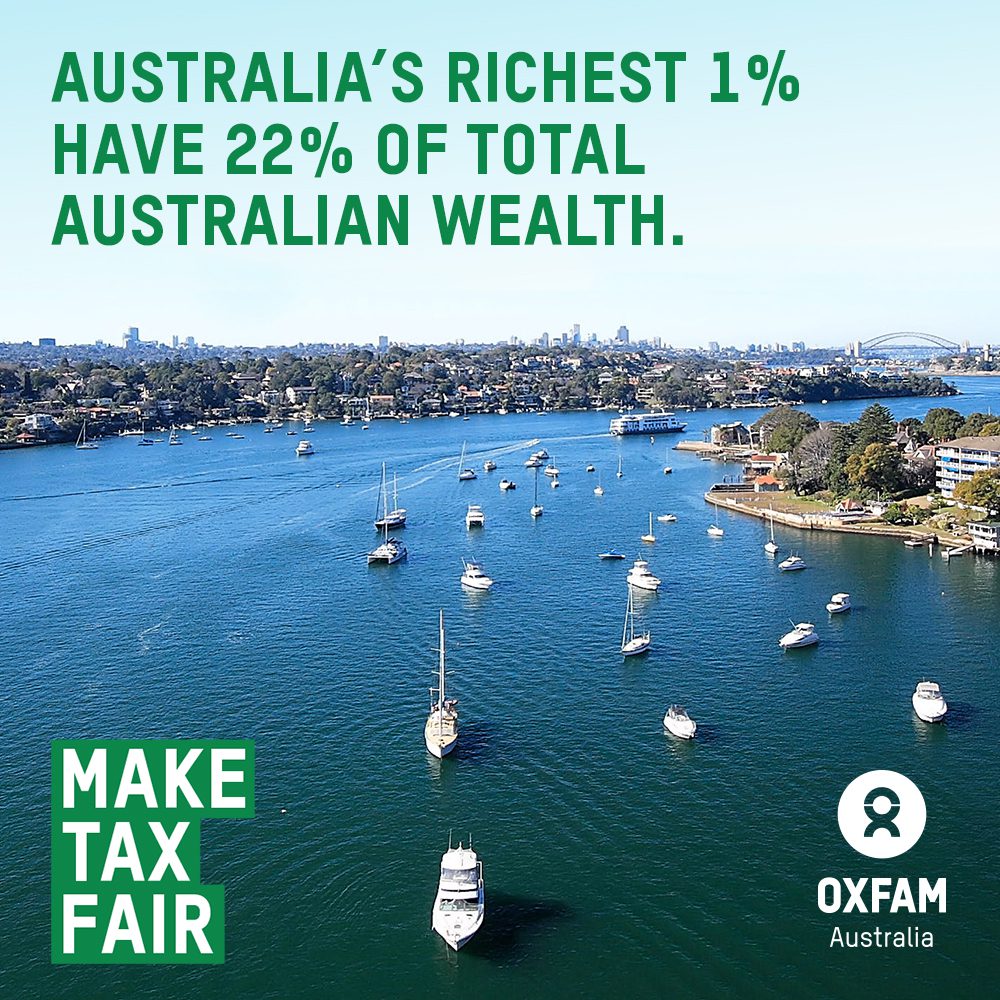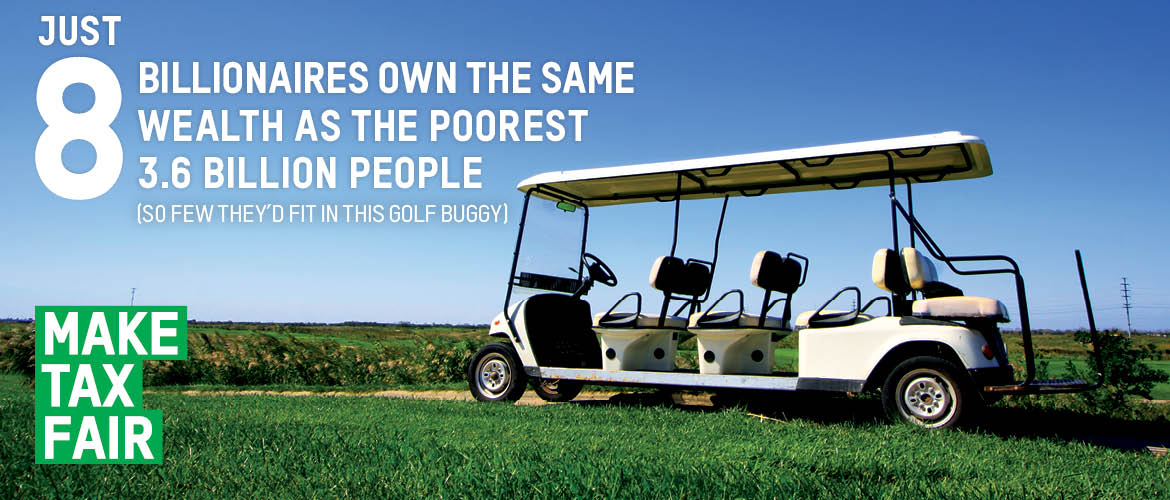The new year has kicked off with heated debate over the government’s aggressive bid to claw back $2bn from some of Australia’s most vulnerable people.
While apparent flaws in the Centrelink welfare crackdown have been a focus of public discussion, the controversy has rightly prompted indignation at a policy targeting members of our community who are struggling to make ends meet, while at the same time, more than one in three large corporations paid no Australian tax in the past financial year. The debate provides a timely opportunity to look at the top end of town, where wealth is concentrated in Australia.
As the world’s political and business leaders come together in Switzerland today for the annual World Economic Forum, Oxfam has released a new report revealing the shocking scale of the global inequality crisis.
The globe’s richest eight men have a staggering net wealth of $621bn – co-existing in a world of extreme poverty where one in 10 people are surviving on less than US$2 a day, and where one in nine people go to bed hungry every night. While public attention will inevitably turn to the identity of the super-rich individuals, this is a distraction from the true crisis at hand– the current economic system is broken. It is one that serves the interests of multinational corporations and the super-rich, leaving the rest of us behind. The new statistics show that the global inequality crisis is more extreme than we had feared.
While there have been inroads in eradicating poverty, the stark truth is that the rich are becoming richer and dwarf the gains made by everyone else, leaving the poorest unable to lift themselves into better lives.
Oanh in Vietnam is just one of the billions of individual human faces of this great divide. She needs kidney dialysis three times a week. While Oanh’s dialysis is covered by insurance, the need for her to pay for medicine leaves her US$100 short every month. In a country where there are still 13 million people living in poverty and where women work for as little as $1 an hour to make clothes for some of the world’s biggest fashion brands, Oanh has no hope of raising the money she needs to pay for a kidney transplant.
Oanh and her partner cannot dream of a family as they fall deeply into debt. Oanh’s plight may seem distant in Australia, but the nation so often referred to as the lucky country is not immune from the world’s inequality crisis.
Oxfam’s analysis shows that in Australia today, the richest 1% of the population own more wealth than the poorest 70% of our citizens combined. Turning to the absolute extreme, the two wealthiest billionaires in Australia – between them worth US$16.1bn – have the same amount of wealth as the bottom 20% of the country. That is, they have more wealth than 4.8 million of the poorest people in this country. Meanwhile, the people in the bottom half of the Australian population have just over 6% of national wealth between them.
But there are ways to bridge the divide and fix the broken system that is breeding discontent, destabilising political institutions, fracturing societies, and risking further economic instability.

The inequality crisis is being fuelled around the world by immoral and unethical practices of big business – the use of tax havens to avoid paying a fair share of tax, which could be used for essential public services, the failure to pay workers a living wage and the expenditure of billions to lobby governments for rules in favour of the super-rich. Previous Oxfam research has shown that tax dodging by Australian-based multinationals is costing our own coffers up to $6bn annually.
It is also depriving developing countries, where money is so desperately needed and services are stretched beyond breaking point, of an estimated $3bn a year.
The problem is undeniable and recognised across all sides of politics. This is not a left or right issue – it is one that is of concern for all of humanity. The time has come for more than just tough talk. Hardline action – such as an unapologetically harsh approach towards the nation’s welfare recipients – should instead target the large companies in Australia that are raking in obscene profits and shirking their responsibility to pay their fair share in tax.
As a first step, the Australian government must make it a priority to introduce full public tax transparency – it must force big multinationals to report publicly on their profits, revenue, employees and taxes paid for every country in which they operate. The government must also reverse the race to the bottom on corporate tax rates, and abandon the tax cut to big business which, as Treasury notes, will have no significant impact on the budget bottom line.
Until governments work towards a more human and fair economy the inequality crisis will keep worsening, with dire consequences to the fabric of society, our institutions, and the global economy.
The time to act is now, before it’s too late to tackle the deepening inequality that threatens to trap millions more people in poverty.
This article first appeared in The Guardian Australia.



